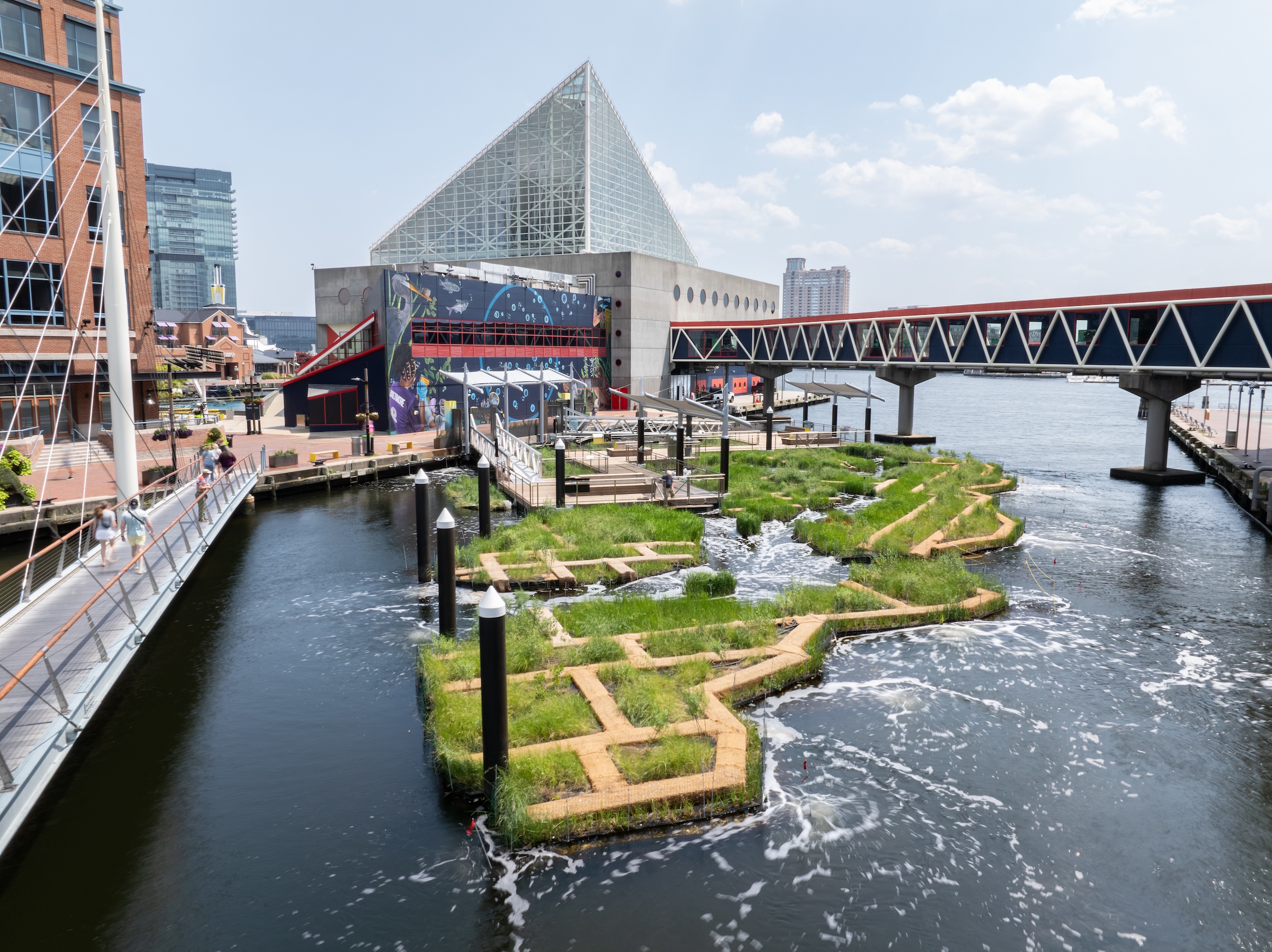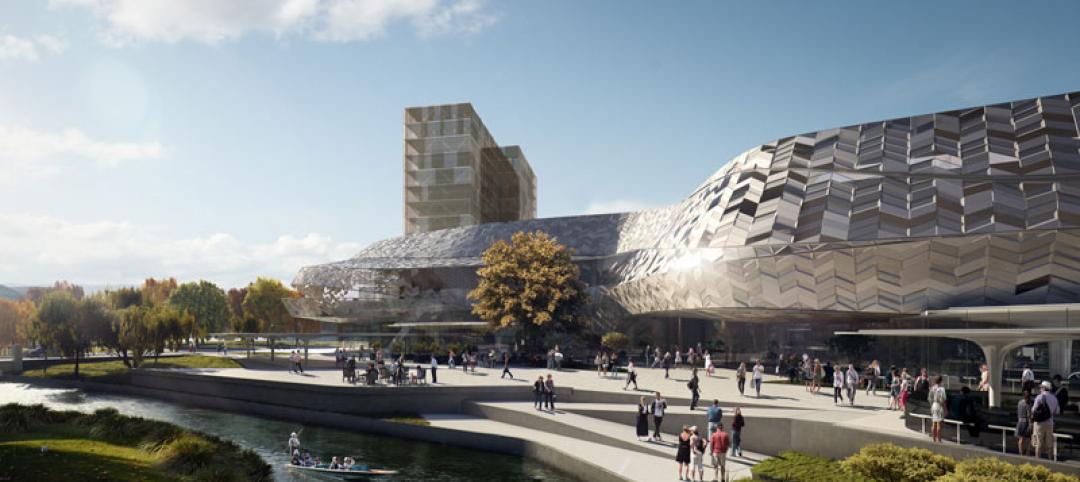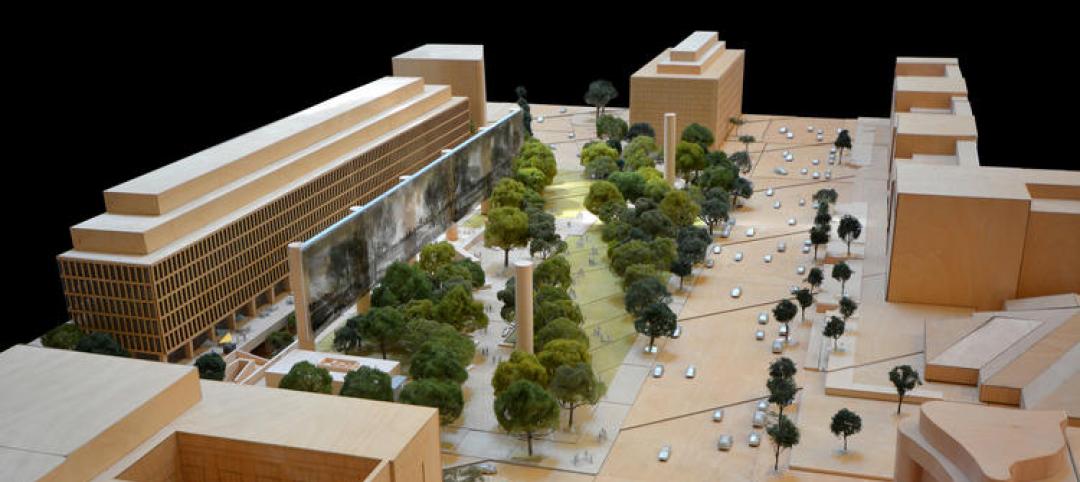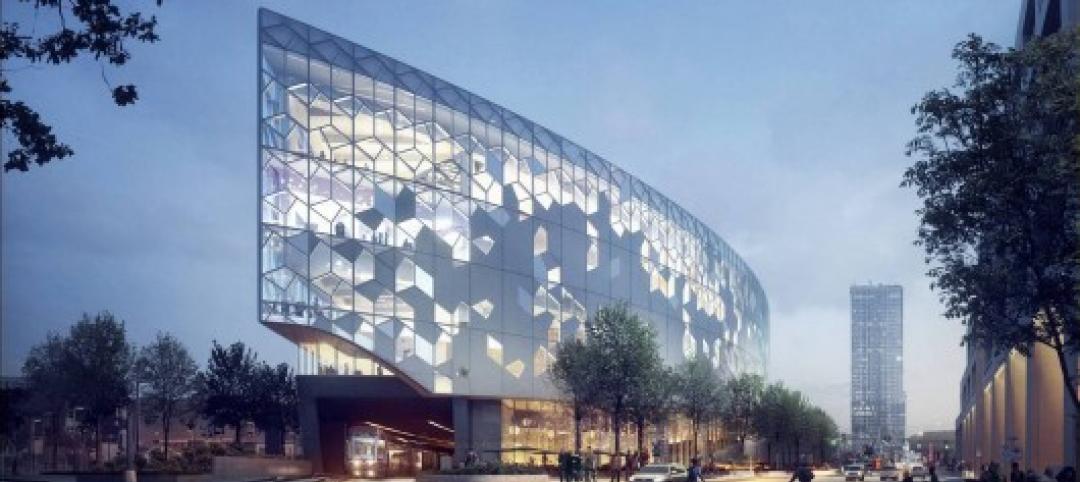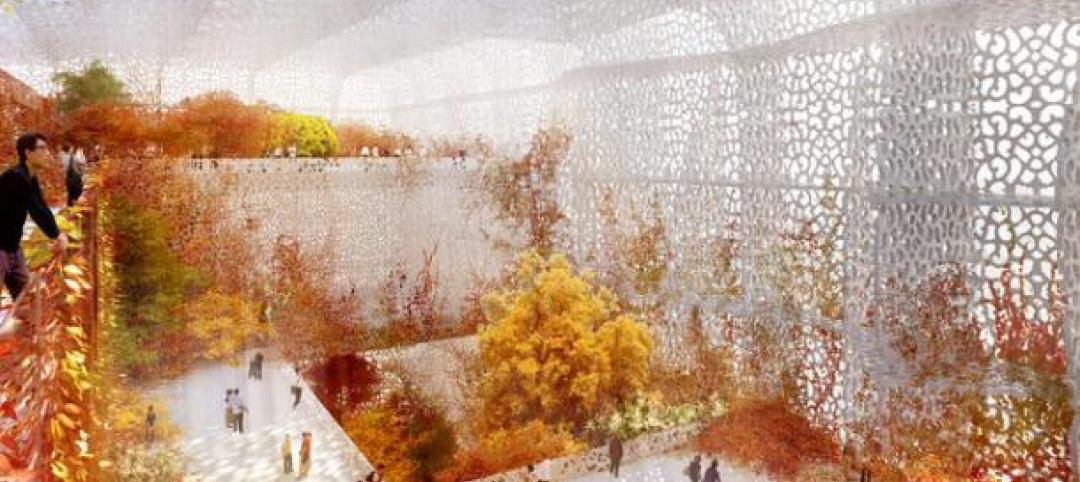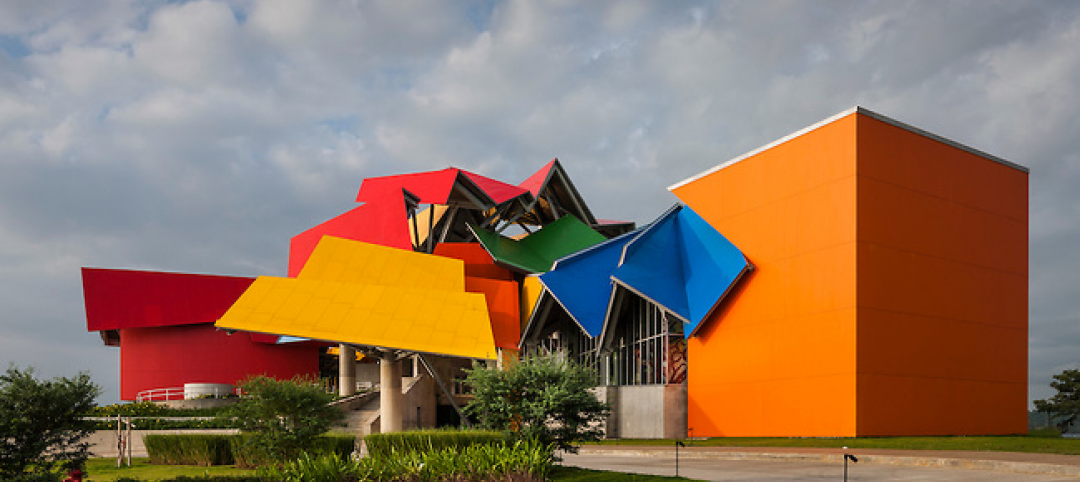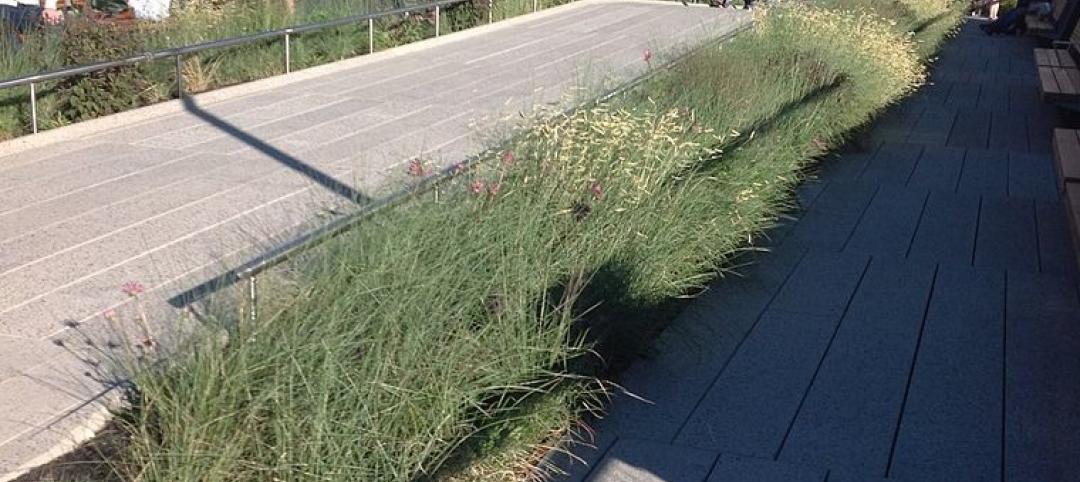The National Aquarium in Baltimore has opened the National Aquarium Harbor Wetland, a 10,000-sf floating wetland that mimics the Inner Harbor’s original Chesapeake Bay tidal marsh habitat. Located between Piers 3 and 4 on Baltimore’s Inner Harbor, the $14 million project features more than 32,000 native shrubs and marsh grasses.
With Ayers Saint Gross as the architect of record and Whiting-Turner as the construction contractor, the project is based on sustainable innovations developed by the Aquarium’s conservation and exhibit fabrication teams. At the project’s start about a decade ago, Studio Gang participated as the original concept architects.
“Harbor Wetland is the culmination of 12 years of research, innovation, and determination,” Aquarium president and CEO John Racanelli said in a press statement.
Ayers Saint Gross worked with the National Aquarium to design a sustainable, high-performing floating wetland intended to restore natural habitats and improve biodiversity and water quality. The project aims to reverse years of environmental degradation while creating a renewed, thriving ecosystem. The design features layered topography, with planting surfaces at tiered elevations to promote a variety of microhabitats and attract a greater diversity of species to the area.
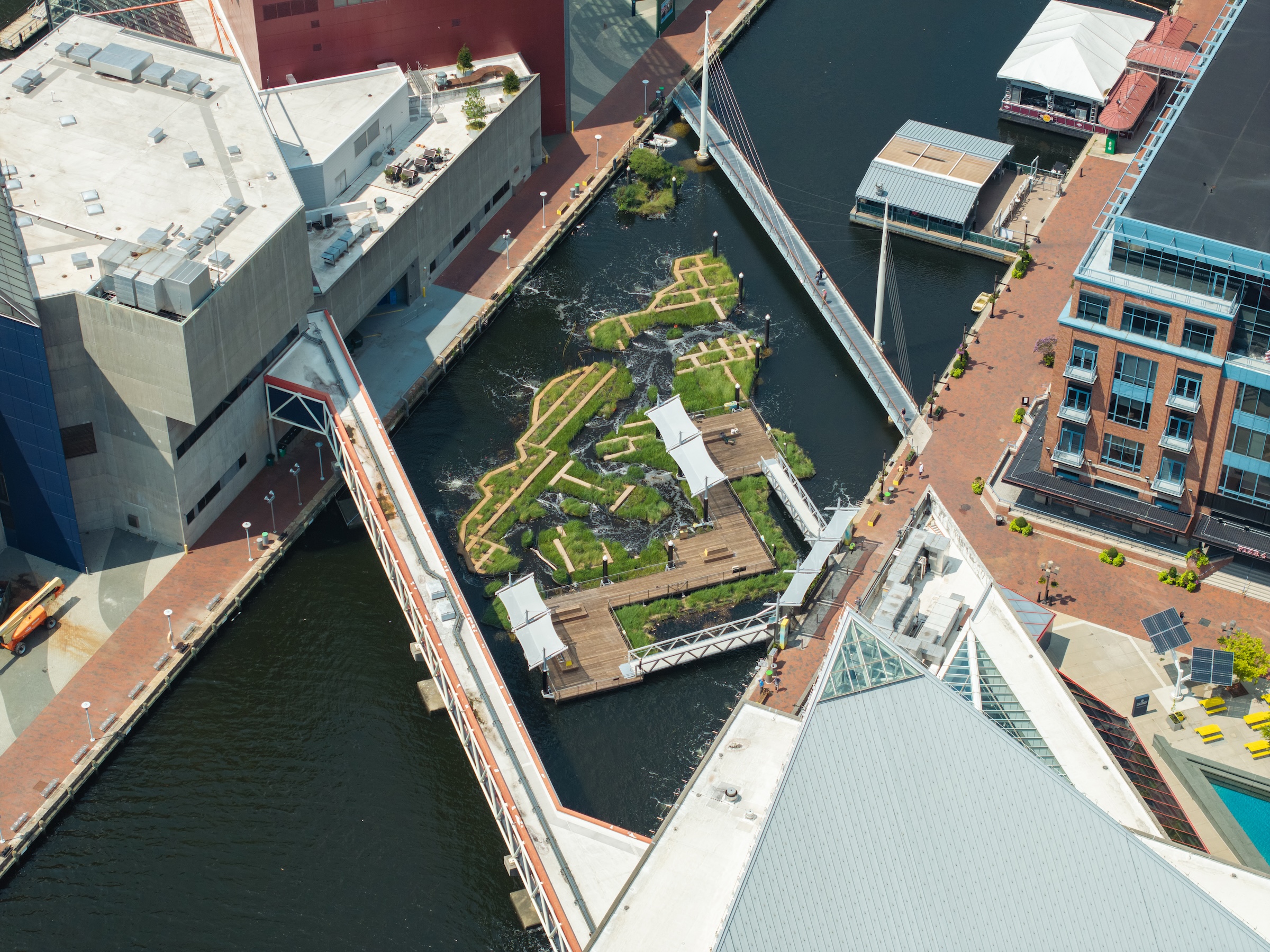
Free and open to the public, the constructed wetland serves as a floating classroom for the community. Interpretive signage allows guests to learn about the wetland, the species drawn to it, seasonal changes, and the surrounding harbor.
Featuring docks, walkways, and shade cover, the habitat is composed of recycled plastic matting planted with native tidal wetland shrubs and grasses, whose roots will grow down into the water. This provides microhabitats for native species while drawing nutrients and contaminants from the water. Coated with a UV protectant for durability, the matting is fixed to a system of air-regulated pontoons that allow for adjustable buoyancy of the wetland, offsetting weight gain from growing biomass.
Compressed air is pumped into the channel to circulate water through the wetland’s shallow channel. Bubbles from the compressed air release oxygen into the water—benefiting aquatic species and keeping water moving through the wetland as it would during tidal changes in a natural tidal marsh.
“We hear so much negative talk about Inner Harbor water quality, but there is life in this water and there always has been,” Jack Cover, the Aquarium’s general curator, said in the statement. “My hope is that when people see the life this wetland attracts, from tiny microorganisms to fishes, crabs, water birds, and even small mammals like muskrats and otters—all of which we’re already seeing here—they might reconsider our local waterways and perhaps even take better care of our natural surroundings.”
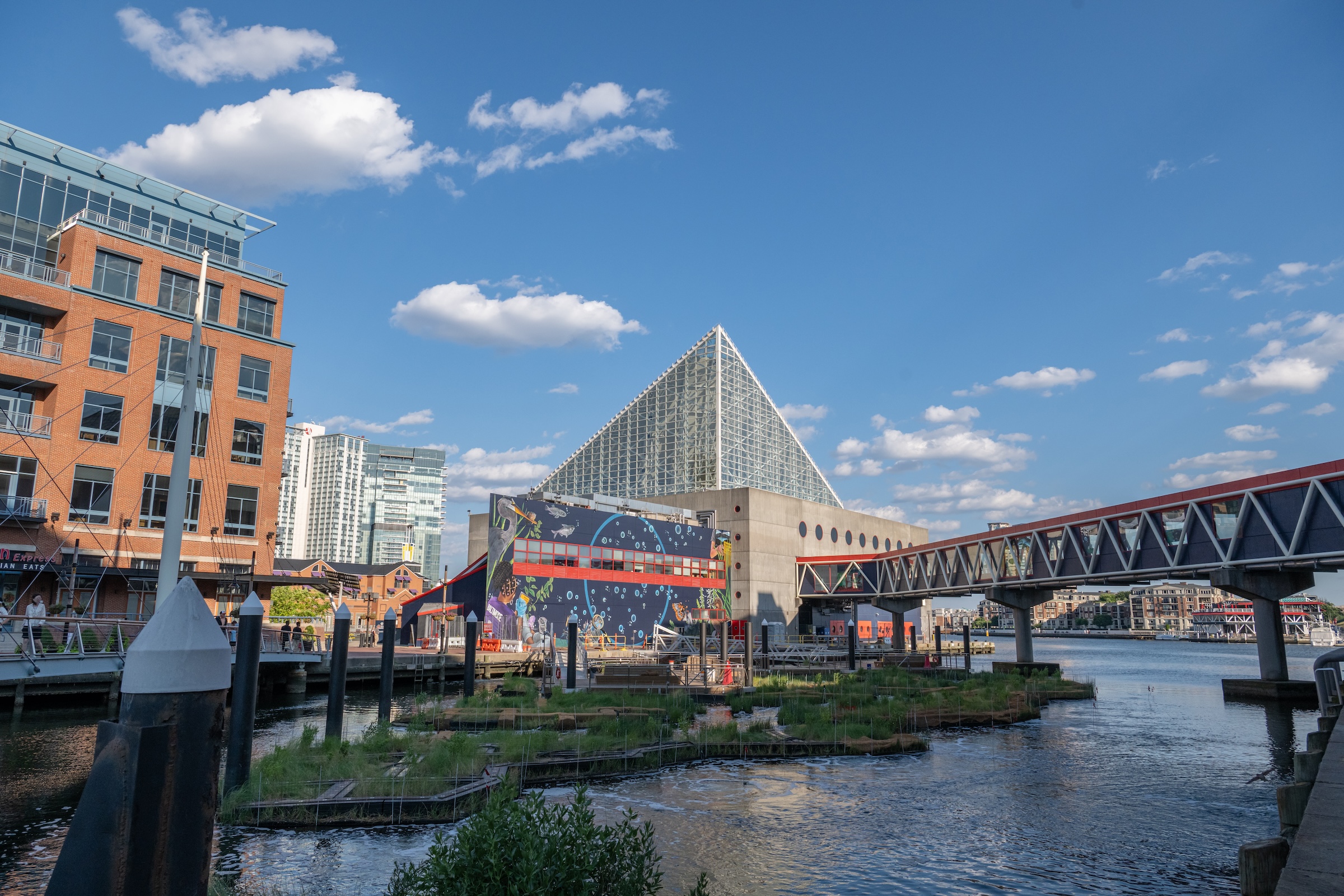
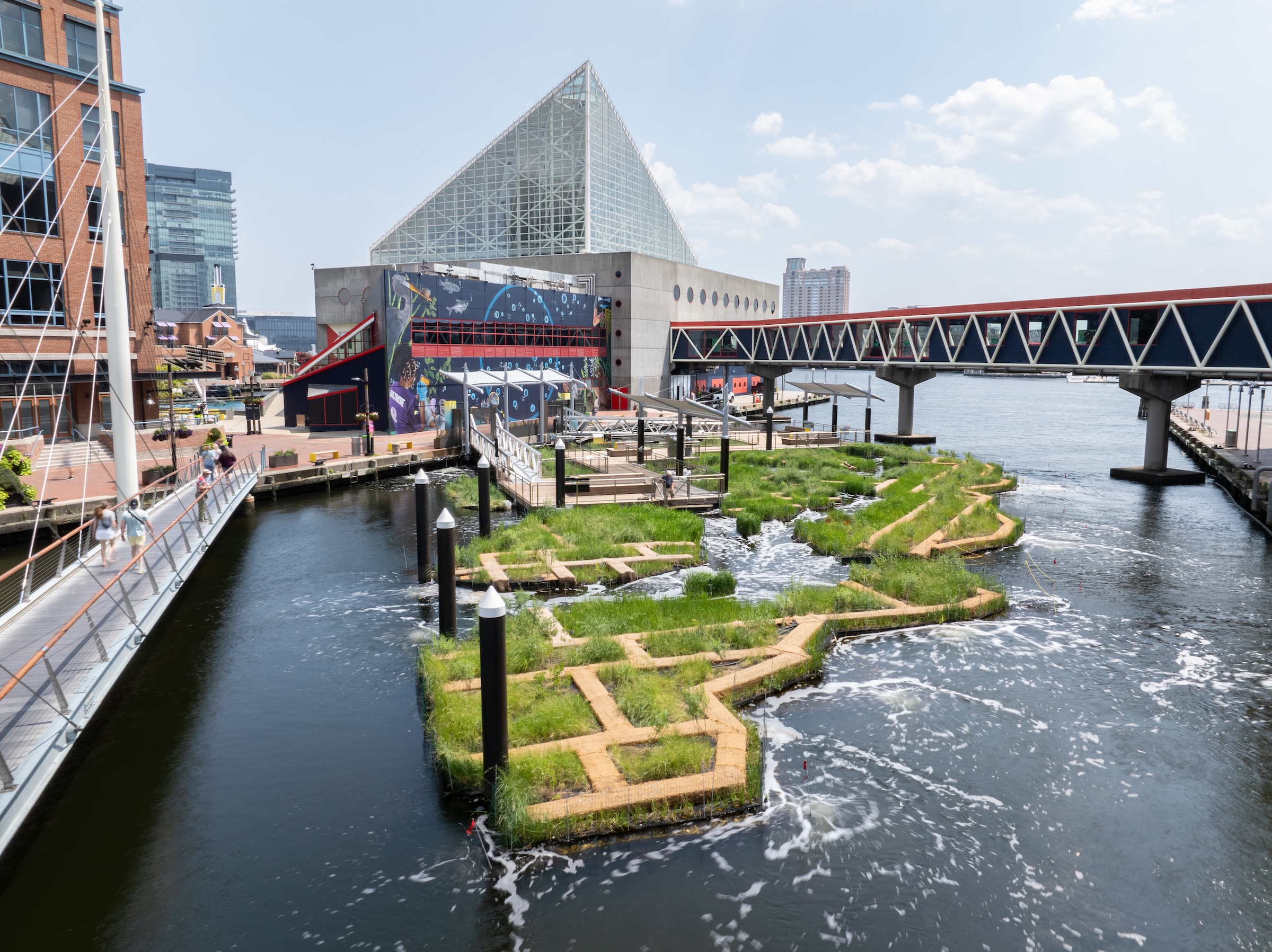
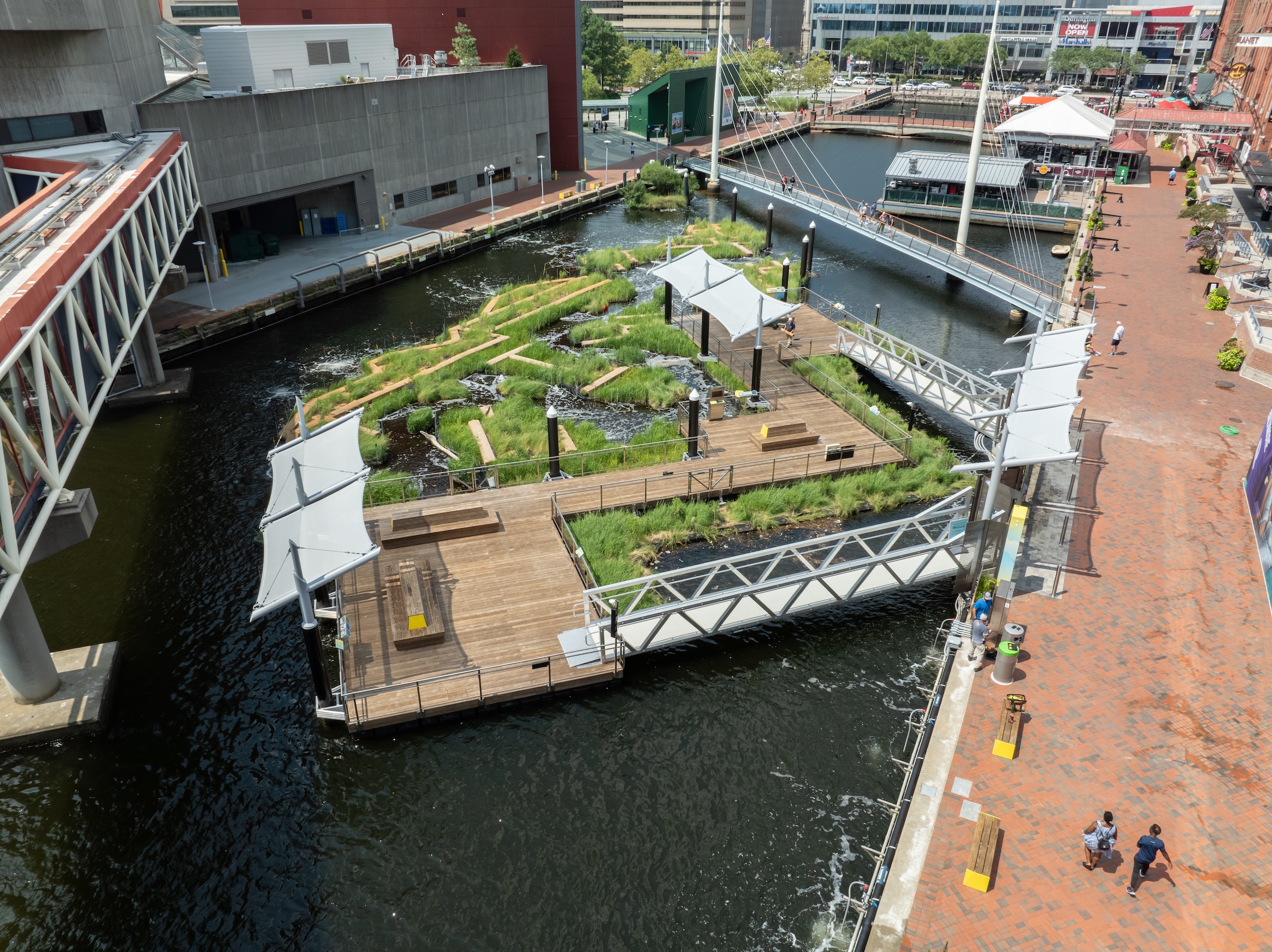
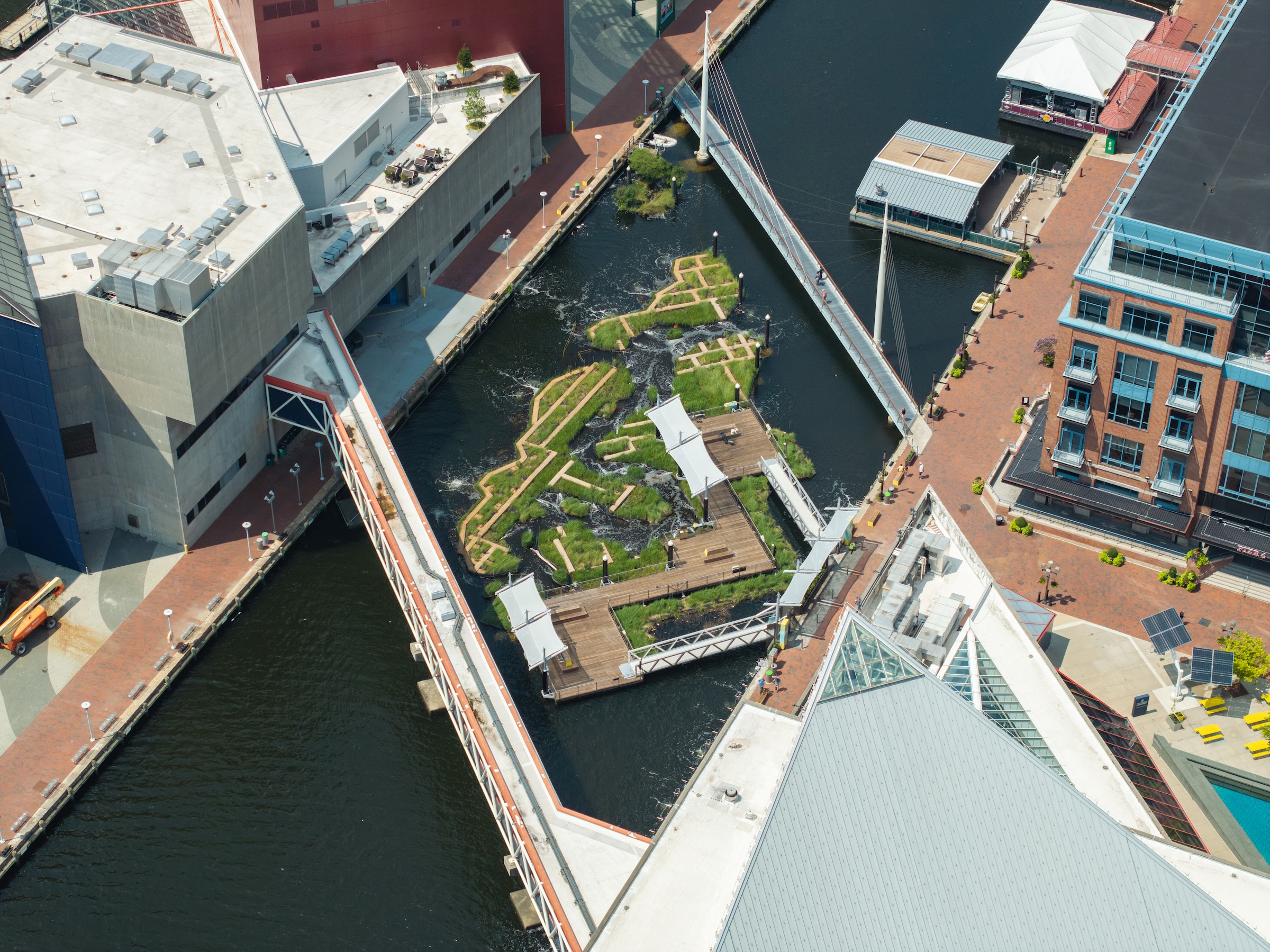
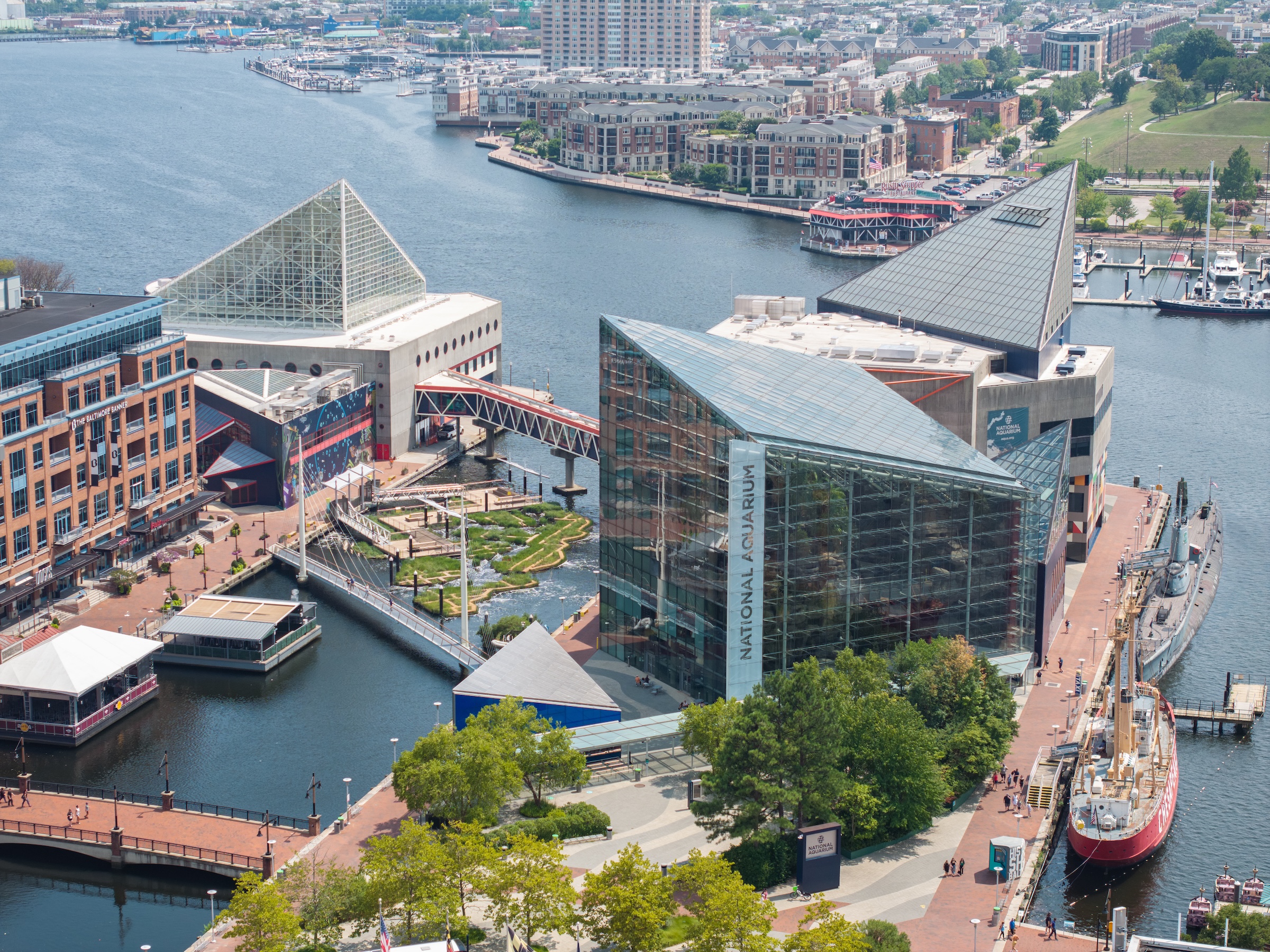
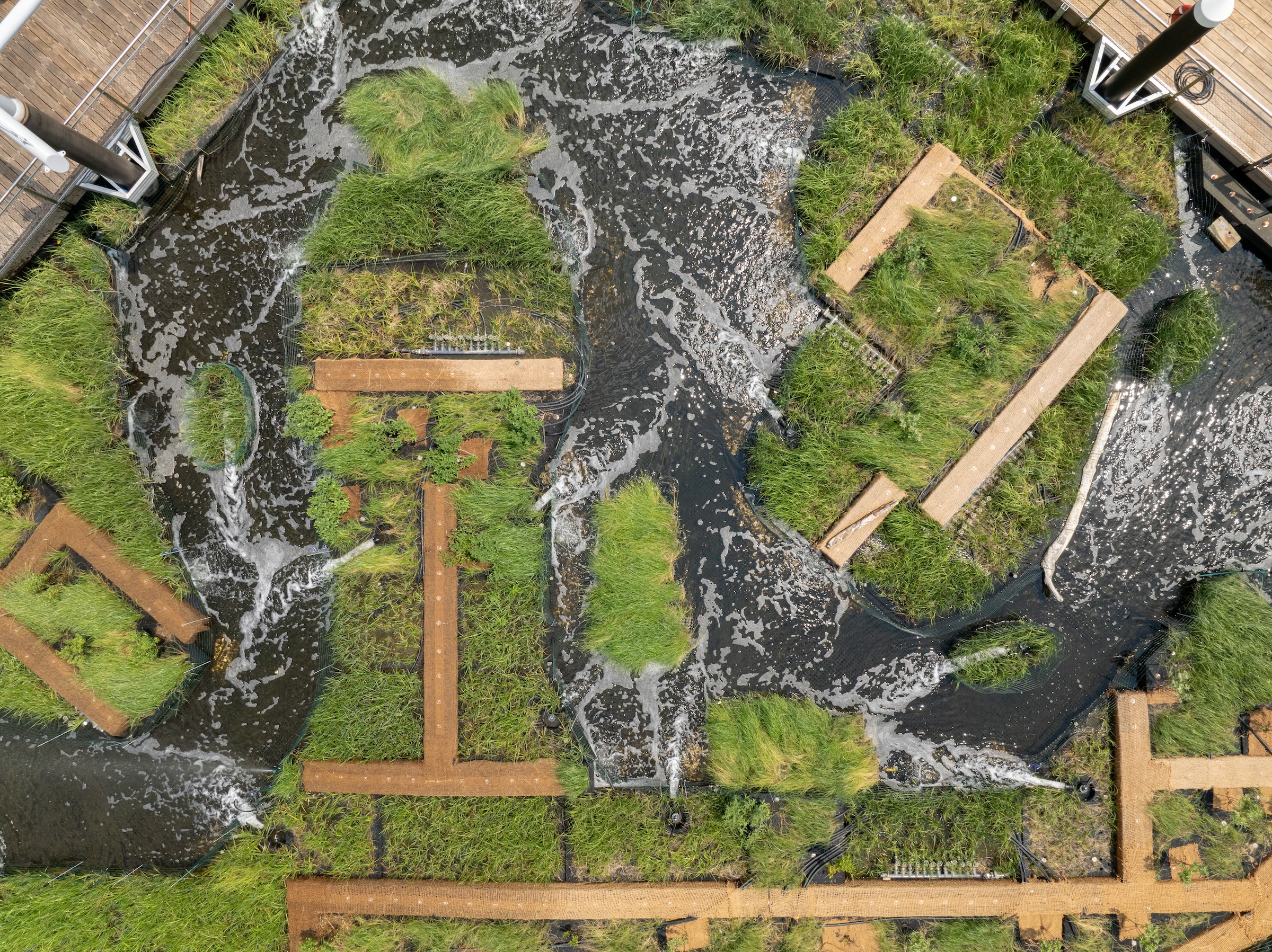
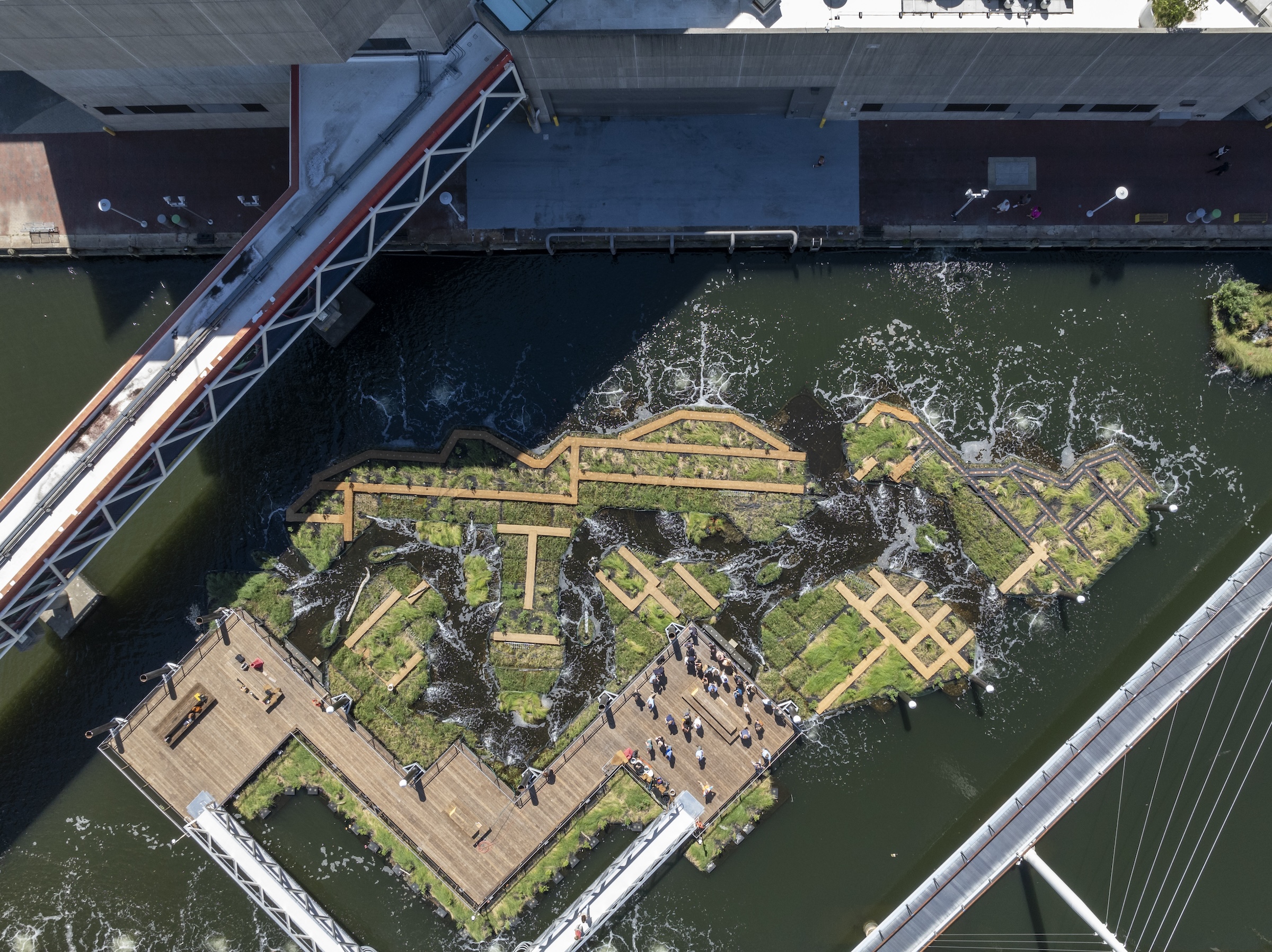
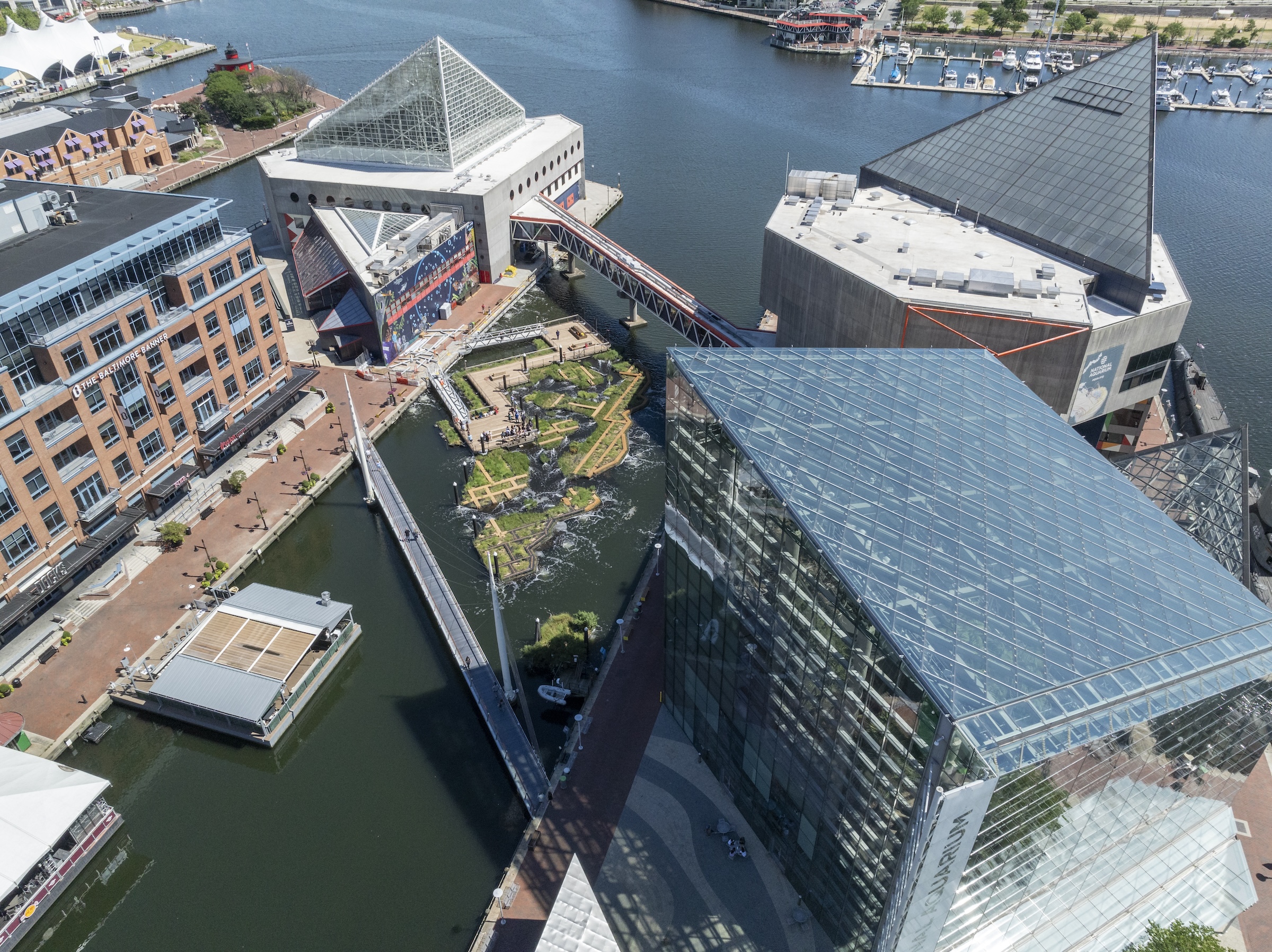
Related Stories
| Oct 10, 2014
A new memorial by Zaha Hadid in Cambodia departs from the expected
The project sees a departure from Hadid’s well-known use of concrete, fiberglass, and resin. Instead, the primary material will be timber, curved and symmetrical like the Angkor Wat and other Cambodian landmarks.
| Oct 8, 2014
First look: Woods Bagot unveils plans for new Christchurch Convention Center
The locally-inspired building is meant to serve as a symbol of the city's recovery from the earthquake of 2011.
| Oct 6, 2014
Frank Gehry's $100 million Eisenhower Memorial gets preliminary approval
After a rejection earlier in the year, Frank Gehry has gotten some good news: his revised design for the Dwight D. Eisenhower Memorial has received approval from the National Capital Planning Commission.
| Oct 2, 2014
Budget busters: Report details 24 of the world's most obscenely over-budget construction projects
Montreal's Olympic Stadium and the Sydney Opera House are among the landmark projects to bust their budgets, according to a new interactive graph by Podio.
| Oct 1, 2014
10 iconic modern buildings first to receive 'Keeping it Modern' conservation grants from the Getty Foundation
Frank Lloyd Wright's Robie House and Jørn Utzon’s Sydney Opera House are among the buildings to receive grants.
| Sep 29, 2014
Snøhetta releases final plan for terraced central library in Calgary
The competition-winning New Central Library is now in the final design stages, after two years of community engagement on the part of design firms Snøhetta and DIALOG.
| Sep 25, 2014
Jean Nouvel unveils plans for National Art Museum of China
Of the design, Nouvel describes it as inspired by the simplicity of “a single brush stroke.”
| Sep 24, 2014
Architecture billings see continued strength, led by institutional sector
On the heels of recording its strongest pace of growth since 2007, there continues to be an increasing level of demand for design services signaled in the latest Architecture Billings Index.
| Sep 24, 2014
Frank Gehry's first building in Latin America will host grand opening on Oct. 2
Gehry's design for the Biomuseo, or Museum of Biodiversity, draws inspiration from the site's natural and cultural surroundings, including local Panamaian tin roofs.
| Sep 23, 2014
Third phase of New York’s High Line redevelopment opens
The $35 million Phase 3, known as High Line at the Rail Yards, broke ground September 20, 2012, and officially opened to the public on September 21.


